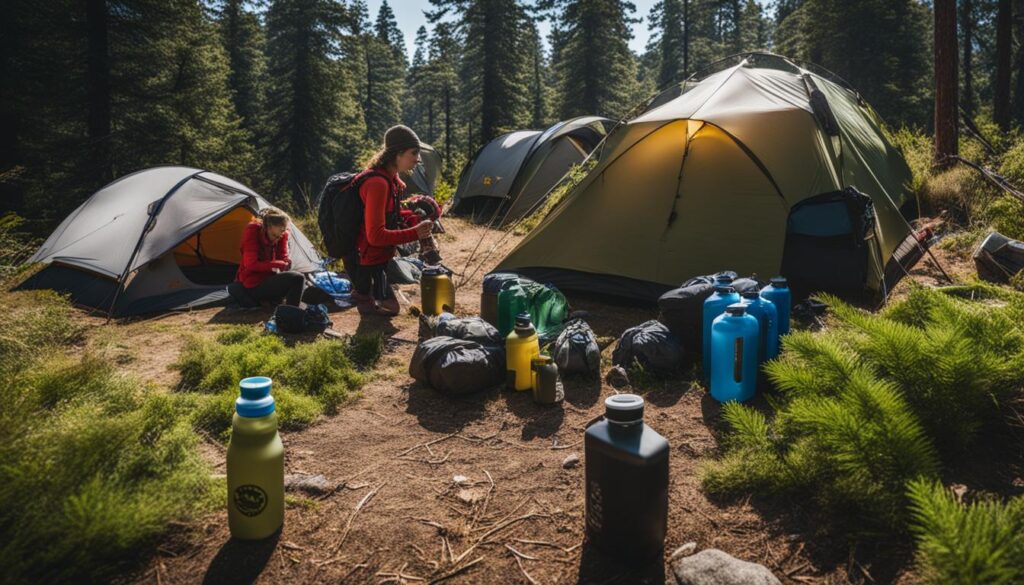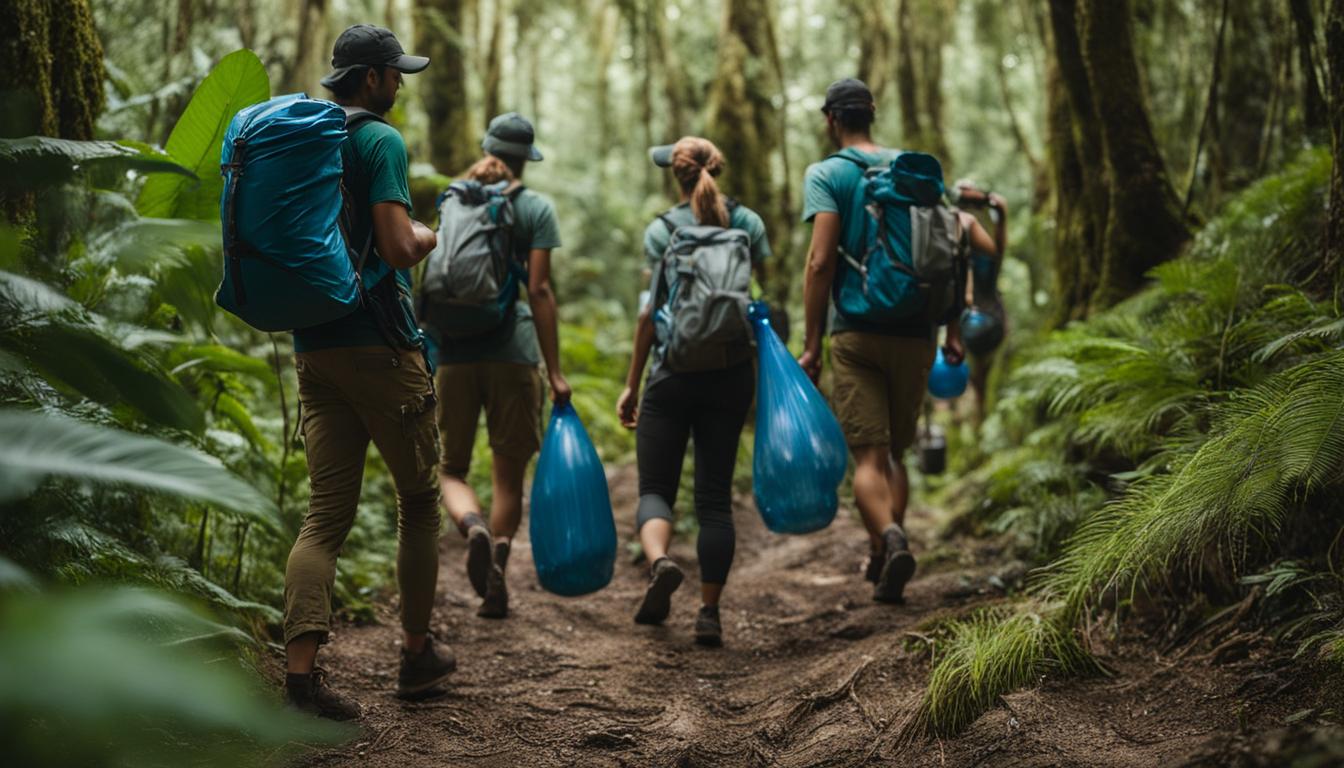As an environmentally conscious backpacker, I understand the importance of minimizing my impact on the environment while enjoying the adventure of backpacking. By adopting sustainable travel practices and promoting environmental awareness, backpackers can play a vital role in conserving our planet’s natural resources.
When it comes to backpacking and environmental conservation, there are several eco-friendly tips and ideas that can make a significant difference. By implementing these practices, we can reduce our carbon footprint, support local communities, and preserve the beauty of the destinations we visit.
Key Takeaways:
- Choose eco-friendly accommodations, such as hostels and lodges with sustainable practices.
- Pack light to reduce your carbon footprint and increase travel flexibility.
- Carry a reusable water bottle, utensils, and a portable metal straw to avoid single-use plastics.
- Utilize public transportation or carpooling to minimize carbon emissions.
- Support local businesses and buy local products to promote sustainable tourism.
Sustainable Practices of Backpackers

When it comes to reducing their impact on the environment, backpackers often engage in sustainable practices without even realizing it. These environmentally conscious actions not only minimize their resource consumption but also contribute to waste reduction and the preservation of natural areas.
One of the notable sustainable practices of backpackers is carpooling. Backpackers frequently share rides to save money and have new experiences, which not only reduces their carbon footprint but also supports local economies. Additionally, the limited carrying capacity of backpacks forces travelers to live with fewer possessions, promoting a more sustainable lifestyle by reducing overconsumption.
Backpackers are also accustomed to sharing resources, such as kitchen facilities, food, and cars. This culture of sharing not only fosters a sense of community among backpackers but also significantly reduces resource consumption and waste. Trust is essential among backpackers who share living spaces and travel together, creating a sustainable practice that goes beyond resource conservation and contributes to social sustainability.
Furthermore, backpackers often demonstrate a strong sense of cultural respect. They actively avoid activities that go against local traditions or laws, ensuring their actions do not negatively impact the local communities they visit. Backpackers are also known for their commitment to keeping natural areas clean by picking up trash—a common practice that contributes to the cleanliness and preservation of these spaces.
| Sustainable Practices of Backpackers | Benefits |
|---|---|
| Carpooling | Reduces carbon footprint and supports local economies |
| Sharing resources | Significantly reduces resource consumption and waste |
| Cultural Respect | Ensures actions align with local traditions and laws |
| Picking up trash | Contributes to cleanliness and preservation of natural areas |
In addition to these practices, backpackers often seek volunteer opportunities to contribute to conservation efforts and give back to the communities they visit. Through volunteer work, they actively support environmental initiatives and help create a positive impact on the destinations they explore.
By engaging in these sustainable practices, backpackers not only minimize their individual impact but also serve as ambassadors for environmental awareness. Their actions inspire others to adopt similar practices and contribute to the overall goal of preserving the environment for future generations to enjoy.
Quote:
“Backpackers have a unique opportunity to experience and explore the world while also minimizing their impact on the environment. By embracing sustainable practices, they can be part of the solution and inspire others to do the same.” – Backpacking Enthusiast
Conclusion
As an environmentally conscious traveler, I believe that sustainable backpacking and responsible tourism are crucial for preserving our planet. With every trip, I strive to make a positive impact and increase environmental awareness.
One way to practice sustainable backpacking is by embracing thrift store gear and buying second-hand items. By doing so, we can reduce waste and decrease the demand for new products, which is a win-win for both the environment and our wallets.
Another simple yet impactful change is to opt for reusable and eco-friendly products. Carrying a reusable water bottle, metal straw, and food storage bags can significantly reduce plastic waste and help protect our oceans and wildlife.
Engaging in activities like picking up trash and volunteering is another way to contribute to environmental conservation. By preserving natural areas and supporting local communities, we can ensure that future generations can enjoy the beauty of our planet.
In conclusion, sustainable backpacking and responsible tourism are not just trends but essential practices that can make a difference. Let’s continue to minimize our individual impact, increase environmental awareness, and work together to create a more sustainable future.

